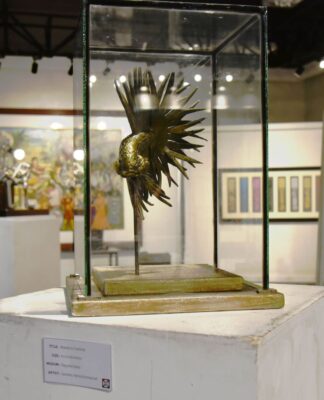THE RICH biodiversity of Taal Lake in Batangas is largely unexplored and needs to be protected, experts said during the first Philippine Symposium on Freshwater Biodiversity and Ecosystems that opened last June 7.
The symposium featured “Taalaman: The Lake’s First Biomuseum,” which showcases the lake’s biodiversity in an exhibit of a wide range of vertebrate and invertebrate freshwater species in glass aquaria, and photo walls and illustrations of marshlands and microorganisms near the lake.
Assoc. Prof. Rey Donne Papa, symposium chairperson, said Taalaman, a word play between “Taal” and “laman” (“content” in English), could help fuel research on the lake, the country’s third largest. It is the location of Taal Volcano, the second most active volcano in the Philippines.
“Kapag kinausap mo ‘yung ibang scientists parang ang dating ang dami na nilang alam pero kapag tiningnan mo ‘yung literature, parang puro haka-haka, puro hearsay. That is why we need more studies, not just theses, but we need them to be published to be validated,” he said in an interview.
The UST Central Laboratory Building, still under construction, will also house a laboratory dedicated to specimen collection in line with Taalaman’s goals, he added.
“Hindi lang ito magiging limited sa freshwater species (in Taal); basta may mga Thomasian researchers, gagawin naming practice na i-document at i-catalogue ‘yung mga darating pa [na research] para maging reference collection,” Papa said.
Taalaman is open to the public until June 17. The symposium is a four-day convention that aims to foster international and national interest in the research field of freshwater taxonomy and parasitology.
The event, hosted by the UST Research Center for the Natural and Applied Sciences, is in collaboration with the International Society of Limnology, Biodiversity Management Bureau, National Fisheries Research and Development Institute, Manila Ocean Park, Wild Bird Club of the Philippines, University of the Philippines Institute of Biology, Ateneo de Manila and the Association of Systematic Biologists of the Philippines. It received grants from the California Academy of Sciences, Pusod Inc. and the United States Agency for International Development. Mia Rosienna Mallari and Julius Roman M. Tolop















